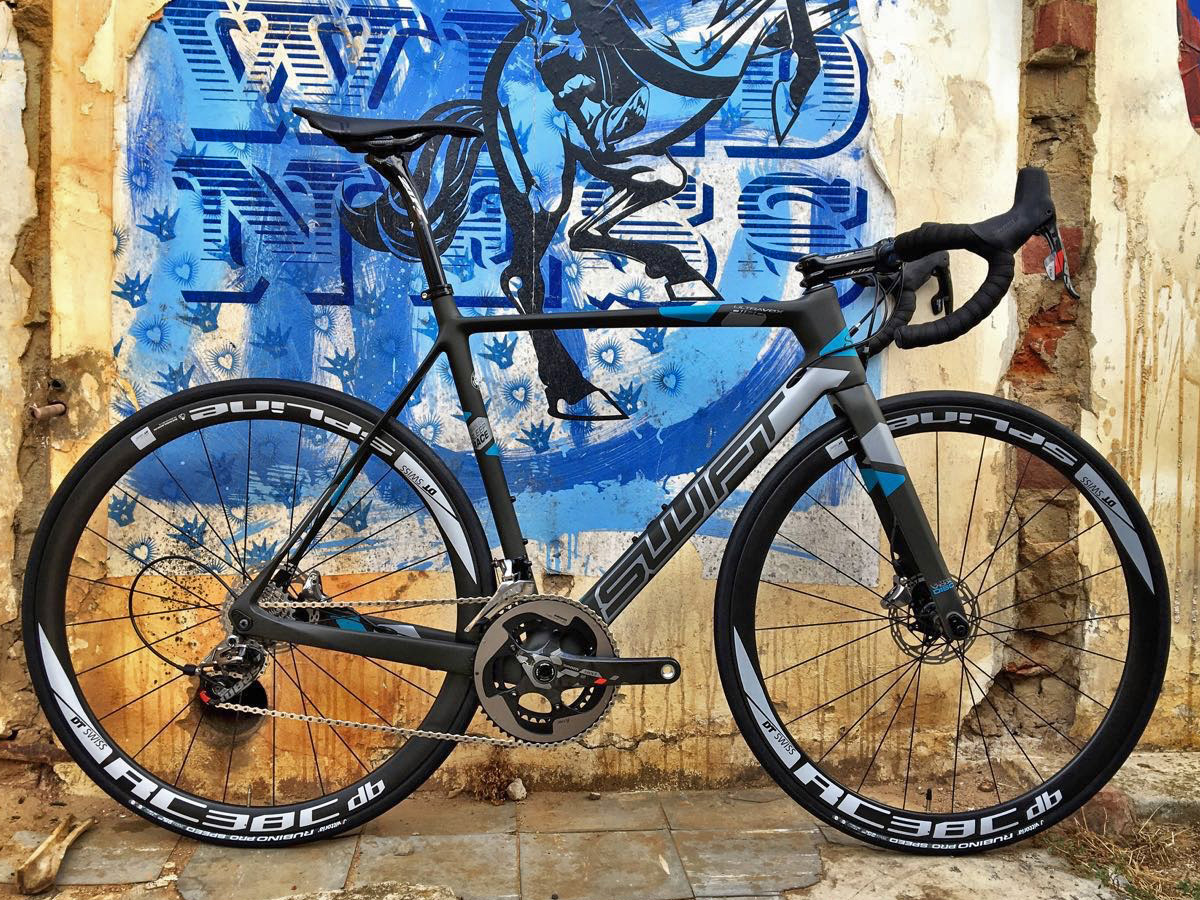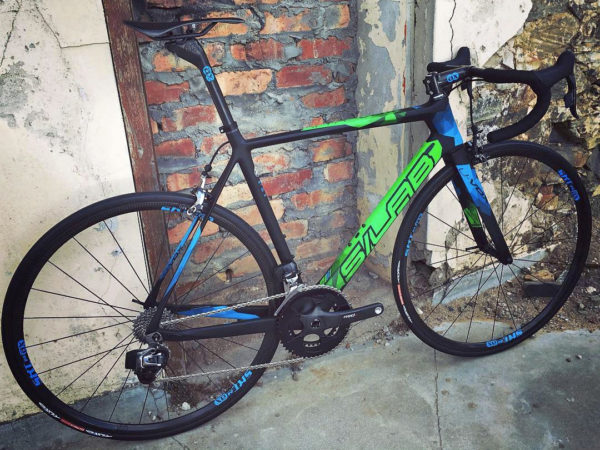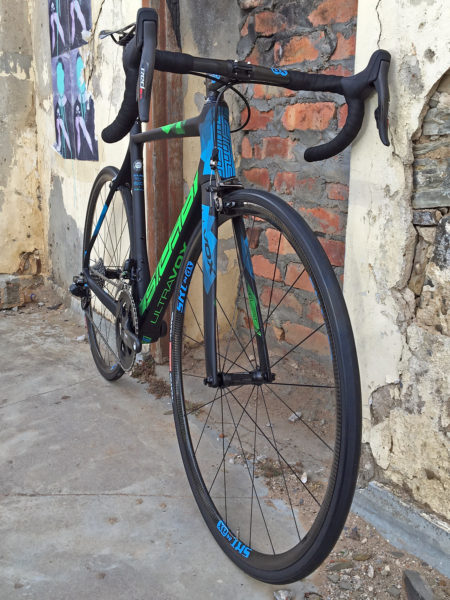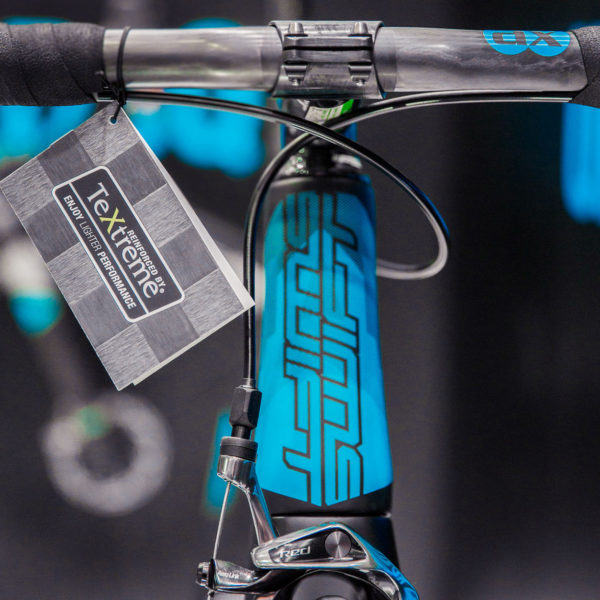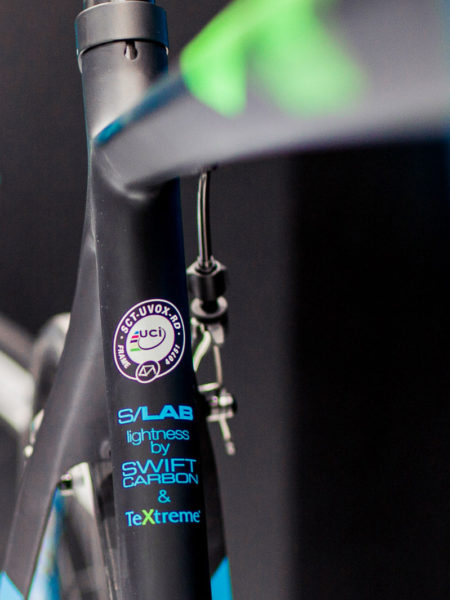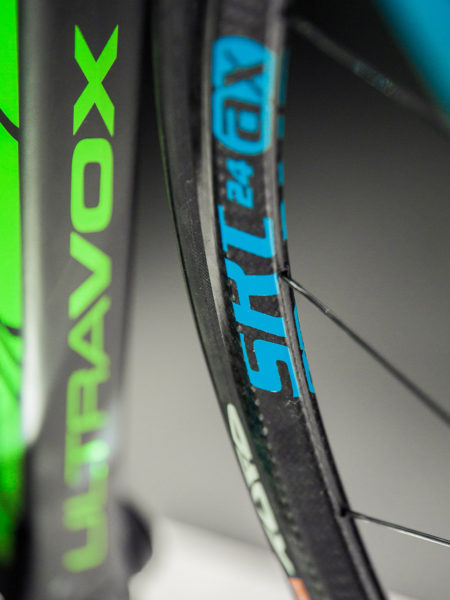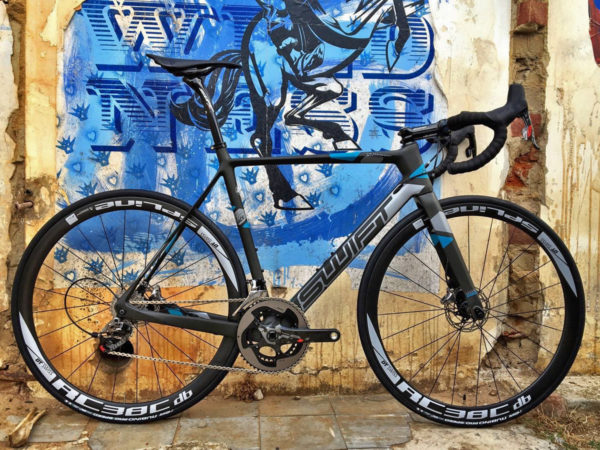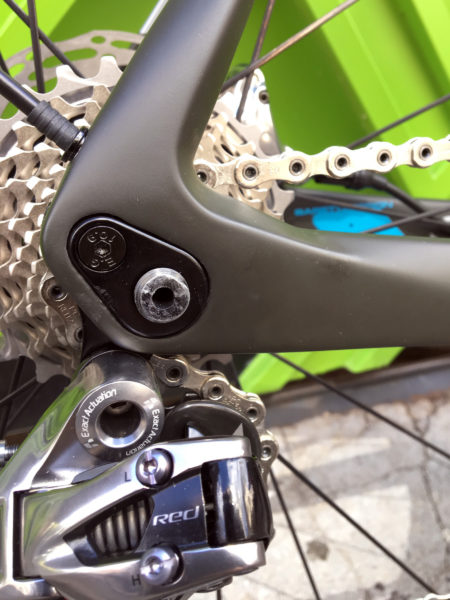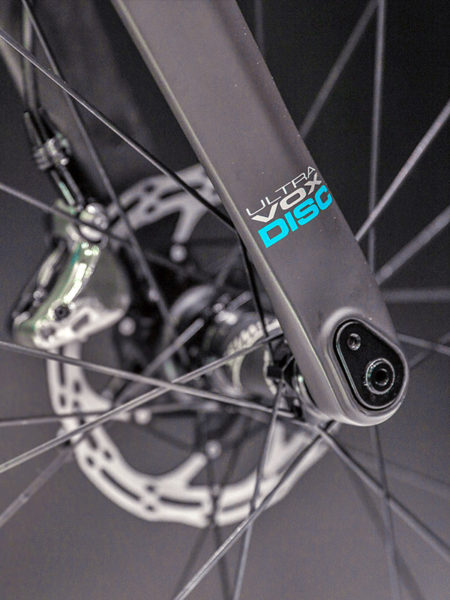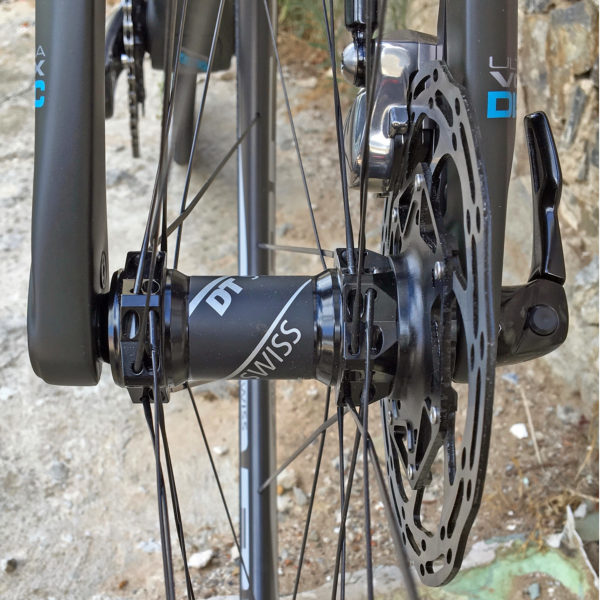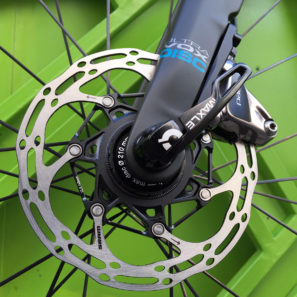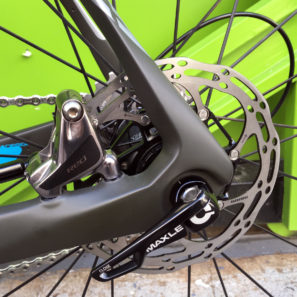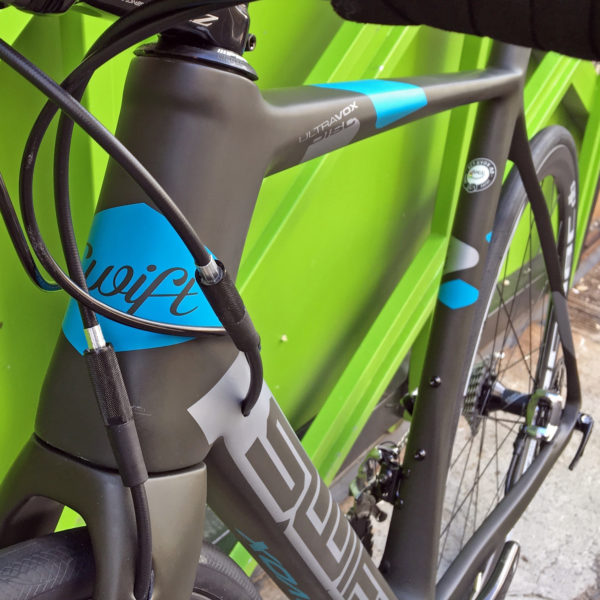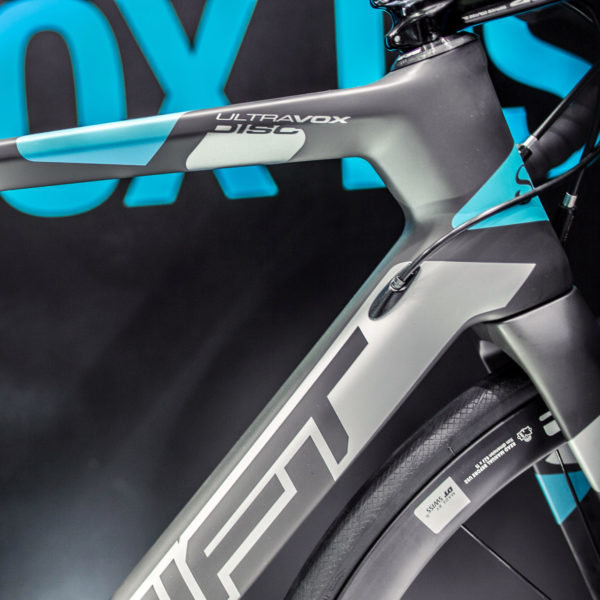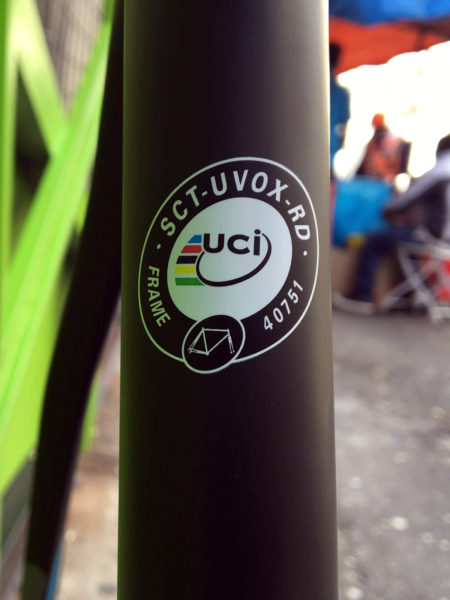Swift Carbon is a bike maker that aims to sets themselves apart a bit it, by building race-level bikes with all-day comfort as their bread and butter. Their newest SSL version of their flagship Ultravox road bike is a firm example of that. They’ve taken some of the most advanced Textreme Spread Tow carbon fibers from Swedish material maker Oxeon and integrated it into their works-level bike not just to trim weight, but to better balance stiffness and comfort in the top-level frame. At the same time they’ve developed a new Ultravox DSQ that incorporates disc brakes into the frame and fork, but in a novel modular axle application that means that as the industry slowly settles on to a road thru-axle standard, you won’t be left searching for obsolete axles and hub conversions…
Swift Carbon Ultravox SSL
The design and product development team at Swift is pretty much entirely made up of ex pro and continental road racers, so they have this continued drive to keep producing better performing and faster bikes. At the same time, they are all retired racers, and while they enjoying fast paced riding and quick handling, they strive now to build bikes that are comfortable to ride all day. Not being tied to sponsor contracts anymore, they of all cyclists can appreciate being able to pick the bike they want to ride.
The riders that started the company said that they always raced carbon bikes, but preferred the ride of their steel bikes whenever the ride was for pleasure. That led them to the development of the first Ultravox concept back in 2011, and every carbon bike since has been aiming for that in touch, but not harsh ride of steel. The use of Textreme has gone a long way towards achieving that. The bike isn’t exclusively made of the new fibers but adds it in judiciously to put stiffness where it counts. In fact an all Textreme bike would be unbearably stiff. Swift actually calls the lesser, lower modulus fibers the ‘heroes’ of carbon bikes, as they are the ones that actually damp vibrations and make the bikes a joy to ride.
The Textreme fibers work by taking bundled fibers and flattening them out into a thin uni-directional carbon tape, what Oxeon calls Spread Tow tape. Their process makes for thinner and wider tapes, with more consistent and densely packed fibers, making them easier to work with and stronger. It also means that when the Spread Tow tapes get woven and layered into fabrics, the fibers lay flatter, stay straighter, and result in thinner laminates.
The SSL bike (Swift Super Light) gets its name for the light fibers and not necessarily a desire to build an ultralight frameset, although it is said to be under 800g. Their Advanced Composites Technologies lab is the their premier development center (the S/LAB label above was a bit of an inside joke in the ACT lab. Who wants a light bike called a slab?) It is this advanced R&D group that is working on projects like the Ultravox SSL, and has developed a set of internal frame ribs that added just 8g to a tube, yet braced it internally so that it wouldn’t change its shape with thin walls and heavy loading.
In addition to the Ultravox, the ACT group is said to be working on SSL versions of pretty much all of their other bikes either already or in the near future, with a Hypervox SSL and an Evil Twin SSL the next two that should come down the pipeline. The SSL bikes will essentially be the team level bikes and will come spec’d with high-end components like this one with Red eTap and AX Lightness components.
Swift Carbon Ultravox DSQ
As for the disc bike Swift was always interested but somewhat afraid of producing a disc road bike. They’ve seen the industry latch onto new ideas so quickly and without any forethought, and didn’t want to jump in with a bike they would have to worry would become obsolete. They are a small company and don’t take the idea of investing in a 6-size mold run lightly, when standards aren’t totally set. They also had a chance to ride early road disc before many of us did, and were frustrated by the early problems with loud squealing and rubbing of the first road setups.
So what they did was come up with a better solution. Their modular axle ends don’t let you change thru-axle diameter (for now) but rather have a removable plug on the driveside that lets you change the thread pitch and axle interface. Their setup is based on 12mm thru-axles, which seem to have settled as the standard, but from manufacturer to another, the threading on the end isn’t always the same. Swift sponsors the DRAPAC team, whose bikes we saw at the TDU earlier this year, and while they are currently sponsored by SRAM, they didn’t want to build bikes that couldn’t be used if Shimano came in with a different interface for next season.
For now that means that the Ultravox DSQ comes equipped with Maxle 12mm quick release thru-axles. But if you want to build a bike up with some other 12mm axles, their modular dropout inserts will let you do so. And if race neutral support finally takes a stand on a new axle interface, Swift will be able to adapt to that too.
With their unique thru-axle setup, Swift was able to cleanly build the bike around 140mm flat mount rotors and include clearance for up to 30mm road tires, and with a claimed frame weight of 900g. The drop outs get reinforced along the chainstays to handle the extra braking loading, but quickly taper on the seatstays back to a thin cross-section for ample bump absorption. Otherwise the front end of the bike is the same as the standard Ultravox, and all versions from the original to the SSL, and now DSQ get UCI certification to allow them to be ridden under their pro team racers.
